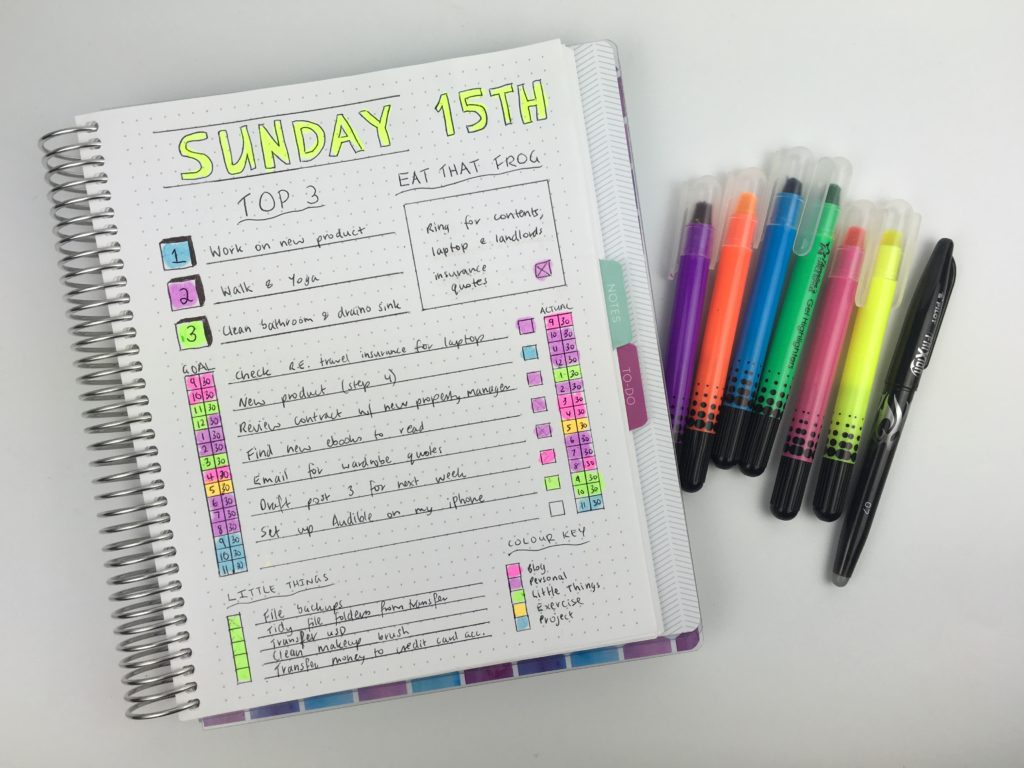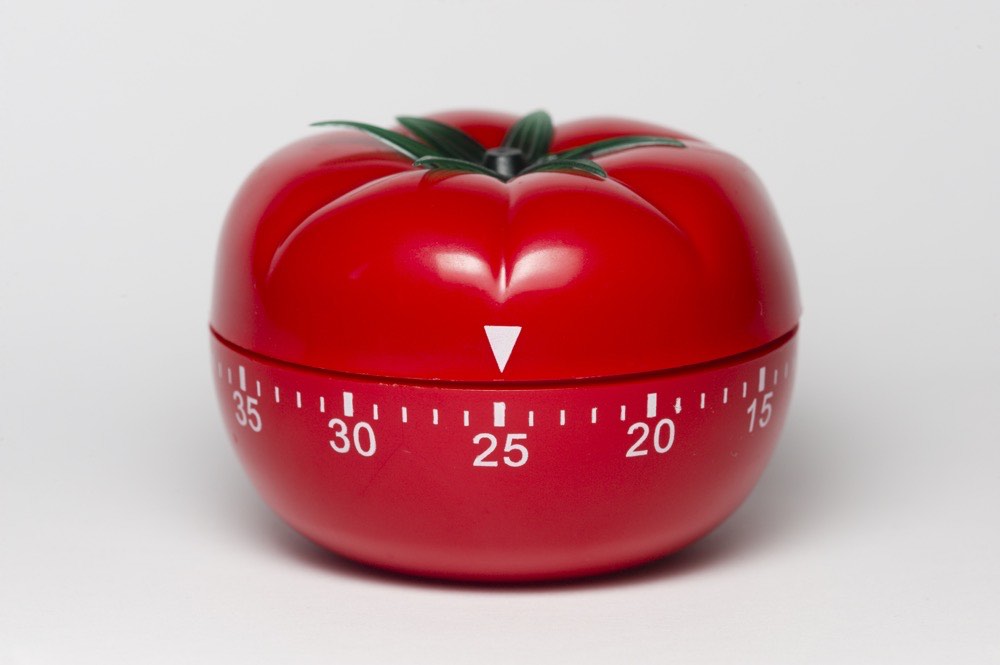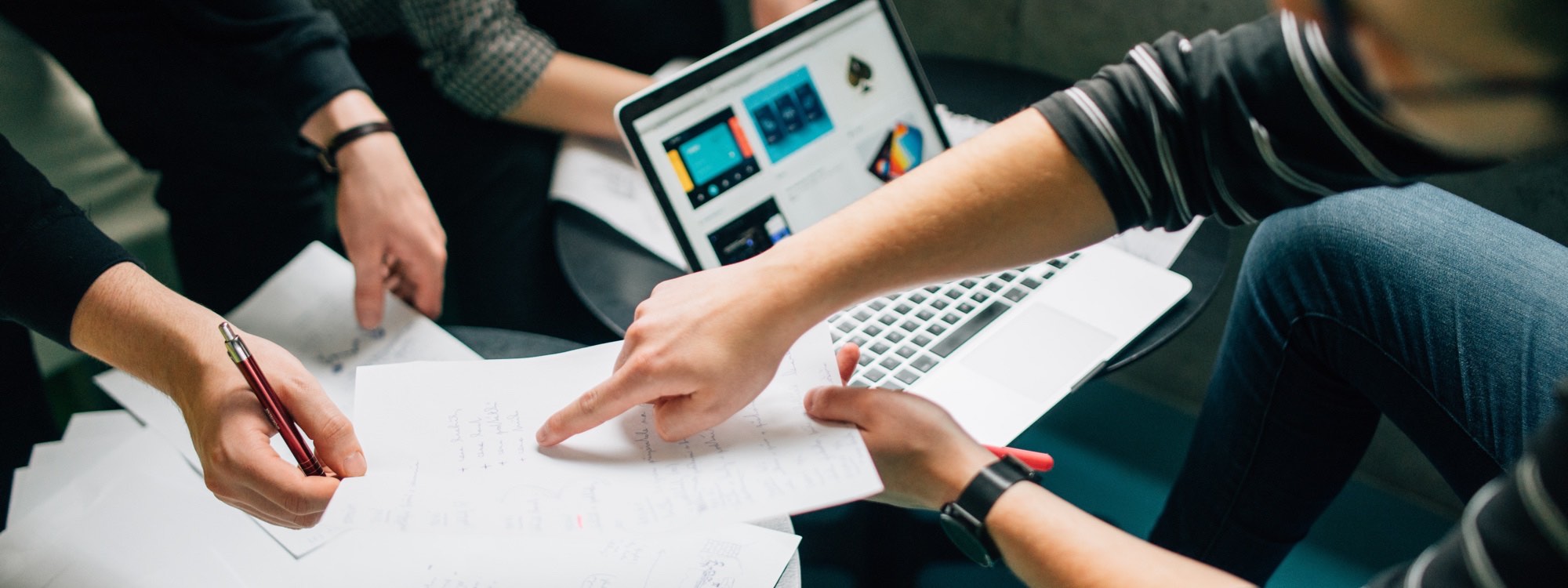In the past, I used to struggle with my productivity, no matter how hard I seemed to study, my grades didn’t reflect it. I was quite stubborn in believing I wasn’t at fault, like some kind of genius who nobody understood, and reading quotes like this one certainly didn’t help me understand it was actually my problem. I was in denial.

For years, I simply resorted to blame the “unfair education system” that was “grading my performance on subjective exams”.
While in general I was a visual learner and had much better results with topics based on practice rather than an abstract understanding of the field, like what happens in Math. It’s also true I was not applying the best methodologies and wasting a lot of time in general.
I’ve learned a lot in the last years and I’ve managed to drastically change how I approach learning, resulting in much better performance. It wasn’t easy, and I’m still tuning a lot of behaviours and situations that aren’t adequately handled yet, but I’ve come a long way, from being one of the lowest graded students to being one of the best graded students, often the top in some subjects.
It took effort and dedication, but the results are so worth it.
My inspiration began with the following video:
Scott Young, the author, is one of the most brilliant minds I’ve ever known, and his dedication to learning and improving productivity have always fascinated me. Near the end of the post, I’ll recommend some great books he has published on becoming a better learner, and improving productivity in general that have helped me achieve my goals enormously.
Like him, I’ve always loved computers. Ever since I was 5 years old, I was sure I wanted to become a computer engineer. And Computer Science is one of the hardest routes you can take in education, just like pursuing pure math, theoretical physics, or medicine degrees. Science in general, is not for everybody. It requires passion, dedication, and curiosity. When I watched that video, my grades were already at an all-time-low, with no signs of ever recovering, so I needed to take action.
I hope my experience and trajectory will help others achieve their goals in life no matter what they are currently studying. This is why I wanted to share this with you.
What doesn’t work
Spending entire afternoons in the library
Some people are lead to believe (and I was too) that spending lots of hours in the library will eventually lead to good grades, the problem is that, let’s be honest, nobody likes being trapped in a building, just to force themselves to read their books and assignments over and over again, with the hope of magically recalling it in the middle of the exam. It just doesn’t work:
It’s been scientifically proven that the human brain can’t focus for long periods of time in a task
Even geniuses like Salvador Dalí took advantage of the way our brains work to vastly improve their learning abilities by taking short breaks and making use of the focused and diffused modes of the brain.
Willpower is not unlimited
Unfortunately, no matter how committed you are to simply not check your cellphone during study hours (or just wander off watching the birds fly or the kids playing in the street), that will not work. What will end up happening is you getting very tired, and associating studying with excruciating work that you really want to avoid. So instead of relying on willpower to achieve your goals, you must learn to use your time effectively.
Using multiple colours to mark your notes

Some “experts” recommend you use different highlighter marker pens to “decorate” your notebook, and highlight the important features in a text. While it looks great, it also does not work at all. Reading, re-reading and marking your notes will do nothing for you, because it’s a passive action that requires little to no effort by you, just like reading a newspaper.
Studying in groups
This is also a technique I used to apply, but I eventually realised it was extremely detrimental to my performance. Let me be clear: the problem is not the group itself, or the people, it’s the methodology applied when studying in a group. If all the members in the group are applying suboptimal studying techniques, you’ll end up inadvertently acquiring them as well. Especially if any member in the group is a smoker, what will end up happening is he’ll want to smoke, and pull members of the group with him to “take a break”. Breaks that will end up taking 30 or 45 minutes. Seems like a waste of time.
Relying only on brute-force memory
Trying to cram an entire subject in memory will often result in failure. There are some talented individuals with photographic memory that can manage it, but in general it’s not a smart technique, especially because you’ll forget everything after the exam.
Energy drinks and sugary, caffeinated beverages

Of course they taste great, they are specifically designed for that! And they promise energy and focus for athletes, what could go wrong? Well, actually, many things. Very reputable sources have long been wary of the adverse health effects these beverages produce. Even if they are socially acceptable, they still contain acid, insane amounts of sugar, and big quantities of caffeine that harm your body. Do your own research and come to your own conclusions. I’ve personally banned energy drinks from my life, and may only occasionally consume a cup of coffee every now and then. But not because I’m a coffee-junkie and I “need” my cup of coffee in the morning.
Denial
Like I was many years ago. Just living in denial and blaming everyone else for my own bad results. Teachers, the education system, politicians… It’s not going to help anybody, and it’s especially not going to help you achieve your goals.
What did work
In my years of applying wrong and correct techniques, coming up with my own ones, researching, and reading books on the topic, I’ve been able to discern the positive or negative results they bring, and here are a few of them
Interval-working
Like I said before, working endlessly on a project will only lead to a drastic performance decrease the more continued time you spend focused in it. A very efficient method, however, is dividing the time into small portions characterised by a constant focus and strong concentration, and small breaks to activate the diffused mode of the brain.
Focused and diffused modes
This is a well researched topic which can be explained by the ability our brains have to quickly switch contexts. Apparently, even after you stop focusing on a hard problem, go relax and read a book, take a walk, or drink some tea, the brain will keep processing the knowledge in the background, but in a much more diffuse way, which can lead to breakthroughs in understanding a particularly complex topic.
The Pomodoro technique

A trademark of Francesco Cirillo, he designed and applied a technique that, in short (you can get more information in the link I provided), designs a time schedule divided in chunks of 25 minutes, followed by short 5 minute breaks, and longer, 20-30 minute breaks every four intervals. It’s definitely an interesting technique, that takes a bit of time to get used to. It’s very important you follow the technique as-is, even if you’re performing great and don’t feel tired.
My own technique
I ended up modifying the Pomodoro technique to adapt it to my way. My way is 60 minutes of focus, deep work, and 15 minutes of relaxation. After every 2 or 3 intervals, I take longer 30-45 minute breaks.
Chunking and recalling
The only effective way to tackle a difficult problem optimally is to break it up into small, understandable parts. For example, in math, to compute the determinant of a matrix, first you need to master the Reduced Row Echelon Form, and learn how the different operations affect the end result of a determinant; like the swapping of two rows inverting its symbol. Once you have managed all the small chunks, you can proceed to complete the puzzle, and this time will be much easier than you remember.
Recalling refers to trying to remember small amounts of information on a (chunked) topic. A great example of this are flashcards. This works very well for remembering historic events, learning foreign languages (particularly those based in Chinese characters or similar that form words with 1-3 characters only), or remembering complex physics formulas. Simply write a very concise and clear question in a piece of paper, and write the answer on the other side. Make some flashcards and then, try to answer correctly before flipping them to see the answer. Keep repeating this daily, for just a few minutes (or every few days), and you’ll see your memory capacity skyrocket.
Interleaving
Supported on the previous method of chunking, this consists in mixing two different disciplines (they don’t need to be related), like for example, mixing linear algebra and algorithm analysis, by studying a 30 minutes of both in each 60 minute sprint before my break. Or maybe study 3 subjects and give each 20 minutes. This works surprisingly well because when you’re working on a different discipline, new ideas and insights may pop up inadvertently, from the previous discipline. At first, it will seem really difficult and may even slow you down, but the secret is that when you’re doing this, you’re interconnecting different chunks related to different subjects, and physically modifying your brain by creating neural connections, making it much easier to recall down the road.
Mnemonics and “visual memory”
When trying to master a difficult topic, brute-force memorising leads to a very bland understanding of the topic at hand. If instead, you try to come up with mnemonic rules and apply visual memory to abstract concepts, recalling them down the road will be much easier, as they will be tied with other memories, and will form a bigger cluster of chunks.
Method of Ioci (memory palace)
The method consists in visually imagining a place, like your living room, bedroom, or bathroom, and embedding knowledge in the environment. For example: imagine trying to learn European history, on how Adolf Hitler shaped WWII. What you can do is come up with a big hotel in which each room is a different year, you open room 1939, and you see the German invasion of Poland, and you also see how Britain and France declare war on Germany. On room 1940, Germany invades Denmark and Norway, and bombs London. This way, you can keep imagining the rooms of the hotel, and even combine it with the flashcard method for ultra-efficient learning.
Gather alternative material to support your subjects
While a great teacher is often the difference between passing and failing grades, a better student knows how to research difficult topics to acquire a broad perspective on it, and complements the classroom learning with excellent books that support the topic. Teachers will often be happy to provide references to great books, and some professors will even write books themselves. If you’re studying on your own, or, for some reason, can’t seem to find adequate material, you can always look up other universities that teach the subject of your choice and read the Teaching Guide for bilbiographic references, or simply search for MOOCs on the topic and try to complete them simultaneously with your lessons.
Surround yourself with the best
Jim Rohn said “You are the average of the five people you spend the most time with”. And, in a way, if you’re surrounded with average people, it’s going to be generally easy to stay on top. Things aren’t so easy when your friends are constantly challenging you intellectually, as you’ll be pushed by peer pressure to become better at it. It’s a great motivator, and you can learn a lot from people who know more than you on a certain topic. In fact, sometimes, the relationship can be symbiotic, in that you know more about a topic X, and they know more about a topic Y, and so each other’s knowledge complements both perfectly.
Abandon perfection
Often times, I found myself striving for such perfection, it got in the way of my performance. For example, my essays have always been of comparatively high quality when compared with my classmates. Not only they had a lot of great content, the presentation was also excellent. The problem here is that I used to spend way too much time on presentation, even from the very beginning, and I should have elaborated a short summary of ideas in the form of a quick and dirty sketch, and improved the visual aspect later down the road, this allows for much greater flexibility when researching a given topic, and less combined time worrying about the placement of elements.
White noise

I live in a very noisy environment, and often, noises would disturb my focus, because everything is so quiet, and suddenly even a sheet of paper falling to the ground is very audible. This is because the brain gets used to the silence, and when it is broken, it places focus in that new, abnormal event. White noise improves concentration by raising the noise floor, so that subtle noises get masked in the continuous stream of white noise. White noise is a random signal that has the property of having equal intensity at different frequencies. A great website I contribute to is myNoise, which has a plethora of different noise generators. I particularly really enjoy white noise mixed with rain noise. But there are so many different generators, you’ll find the one you prefer.
Learn another language
Especially important for monoglots, speaking two or three languages, often means you also have to learn the culture of each respective language. For example: Japanese people are particularly known to be extremely well-mannered, and this translates directly into the Japanese language, in how imperative forms are used (it often is not!), as the Japanese people see command forms as very aggressive, instead, they make requests, even to people of lower social status, like bosses to their employees.
Not only it opens your mind to different cultures, and gives you an edge when trying to work abroad, there are also articles that claim being bilingual makes you smarter and despite the clearly sensationalist headline, we must not dismiss the facts.
I invite you to look it up if you’re not entirely convinced!
I speak Spanish natively, and very fluent English (almost native), and currently find myself learning Chinese. I believe it’s the language of the future, and I’m increasingly seeing GitHub repositories entirely written in Chinese. While it’s somewhat easy for me to read French or Italian, due to their romance roots, Chinese is completely unlike any other language except Japanese. In fact, I can read some Japanese words now, and I barely know 50 Chinese hanzi!
Practicing sports
Unsurprisingly, practicing sports brings many benefits, from cardiovascular performance enhancement, weight loss, endurance enhancement, better sleep, and many more.
One of the very important benefits of practicing sports is related to mental performance, a study shows that running enhances learning and promotes synaptic plasticity (which is the ability of the brain to shift and change its structure, creating new connections which is essential for learning). And it’s not the only one, there’s tons of proof that exercising is beneficial, not only to physical wellbeing but also to the health of the brain. In Latin “Mens sana in corpore sano” means “Healthy mind in a healthy body”, so this is nothing new. What are you waiting for to hit the streets today?
- 14 ways one type of exercise is the closest thing to a miracle drug we have
- Regular exercise changes the brain to improve memory, thinking skills
- How Exercise Boosts Your Brainpower
- Study Finds Aerobic Exercise Improves Memory, Brain Function and Physical Fitness
Meditation and buddhism

For a long time I suffered from anger management issues, depression, and struggled to understand things outside of my context (what’s called “think out of the box”) because I wasn’t aware of my own self and my surroundings, and just seemed to let myself go with the flow, like a dead fish.
I came in contact with Buddhism a good 10 years ago, and it has literally changed my life profoundly. I follow the Zen branch of Buddhism, which is the one that’s less concerned in deities and religious figures, and instead focuses heavily on the practice of meditation. Zazen is the primary meditative practice of Zen Buddhism, and it’s generally referred to as sitting in silence, as a means of insight into the nature of existence. There are many meditation methods, and one in particular I tend to follow is Anapanasati, which literally means “mindfulness of inhalation and exhalation”, or the practice of watching your own breath. This is the most well known and probably the easiest technique to apply for beginners. There are many books and videos on the topic, but basically it helped me manage my emotions, focus my energy and not waste so much time procrastinating, among other things.
Avoid overconfidence
It’s often easy to fall prey to overconfidence, just skimming through the notes and thinking you know everything, because you can see it all written right before your eyes. But if you take solved exams, cover the solutions with a piece of paper, and try solving them without peeking at the solutions, it becomes very difficult, especially if you have not mastered the topic at hand. This is solved by practising, using flashcards and the Method of Ioci, for example.
You can also take solved exams and work through them with the same restrictions you’d have in a real exam: time limit, no notes (well, depending on your professor’s rules, some of my college teachers would actually allow us to carry our notebooks, including textbooks and problem sets), and, when you’re done, grade yourself honestly, and see how you did compared to the provided answers.
If your professors don’t release solved exams, you can, most of the time, pick up books from the library with solved problem sets. And best of all, you can create your own problem sets to challenge your knowledge. Try to solve them without the course material, and then solve them again using the material provided, calculators and theory.
Get to know, appreciate and love yourself
This may seem obvious, but you need to know yourself, your skills, limits, and be honest with what you’re good and bad at (and improve your shortcomings!). And most importantly, don’t beat yourself for not being good enough. Nobody is born knowing everything. It’s true some people have some learning advantages compared to you, and some other people also have disabilities. Don’t let that stop you from pushing yourself to the limit, and becoming a better yourself tomorrow than you were yesterday. There’s only one way, and that way is forward.
Passion and ambition
I’m very passionate, and I’ve always strived for the best, giving the most of myself in whatever it is I’m doing. I’m determined to leave a positive impact in this world, that will last for long after I’m gone. And the only way to achieve this is to be determined to improve yourself every day, to see the best in yourself and others, and not settle for less. I believe people without passion cannot achieve success in life. Because, to be successful, you first have to want it. And not just wish it passively, but work on your goals and dreams every day. Fortunately, in this day and age, it’s easy to find your passion, and pursue it into college. In Europe, education is cheap and of great quality. In the USA, education is not that cheap, but you can get grants. In general, the quality of the national educational systems have improved vastly worldwide, and with the introduction of the Internet, Wikipedia and MOOCs, it’s easier than ever to achieve knowledge excellence, even for free. Like a certain brand of sport clothing says: “Just do it.”. Excuses are for quitters.
Learn more
There are lots of books and courses dedicated to teaching you to become a better and more efficient learner. I’ve reviewed some of them, and most of my findings and insight comes from them. Over the years I’ve also developed some personal techniques that I have enumerated, but bear in mind, they work for me, and they dont necessarily have to apply to you. It would be a much better idea to develop your own techniques based on your own experience and insight: much like I did.
Here are my references:
- “A Mind For Numbers: How to Excel at Math and Science (Even If You Flunked Algebra)” by Barbara Oakley - Sounds great, doesn’t it? Well, it works even better.
- “Deep Work” by Cal Newport - The same guy who presents the MIT Challenge video above. Highly passionate guy, very recommended.
- “How to become a Straight-A Student” by Cal Newport
- Learning How to Learn - Coursera
- Athene’s Theory of Everything - Youtube

